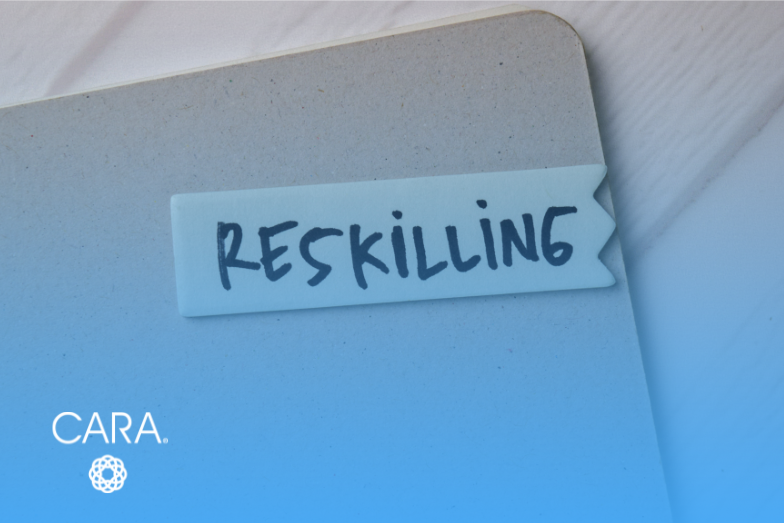
Have you ever heard the saying, “I can meet you in the middle, but we can’t stay here”? In a world of constant change and turbulence, this statement reminds me that no matter what the change is, whether it is on a professional or personal level, we all need to work together to drive towards a better future, and that often means upskilling or reskilling.
In Gartner’s recent report, Top 5 Priorities for HR Leaders in 2024, Leader and Manager Development is the number one priority of business leaders today. With the rising impact and uncertainty surrounding AI and new ways of working, the pressure for operational efficiency, and employee burnout due to change saturation, managers’ roles and skillsets need to evolve.
Learning professionals know that adoption of new skills and behaviors does not happen overnight and that programs incorporating change management will ultimately achieve long lasting results. But as we face a new year with many new and continuing workforce challenges, business leaders can’t afford to wait when it comes to now is the time upskilling or reskilling their team’s core (hard or functional skills needed to accomplish a job) and power (soft or people skills needed for interpersonal relationships) skills.
Employers should:
- Evaluate and potentially reset role expectations.
- Understand the gap in core and power skills within their organization at all levels.
- Create a strategy or bring on a partner to evaluate and address the learning and needs to upskill and reskill staff, especially managers and division leaders.
- Continually evaluate and adjust the plan over time. Don’t let your strategy become stagnant. It needs to shift as technology and the way we do business continues to change.
Employees should:
- Assess and determine what skills you would like to develop whether it is related to your current role (upskilling) or for a different role (reskilling).
- Take advantage of what your employer has to offer. Have conversations with your manager/employer to ensure you are all on the same page with your goals.
- Not rely only on what your employer is providing. Research and look for your own development opportunities. Whether that is taking classes, attending conferences, taking on projects, etc. Not only will it help you enhance the skills needed for your current role, it may also offer you an opportunity to take on stretch assignments or move into a new career path.
For example, if you’re a learning professional looking to enhance your eLearning skills, why not check out Tim Slade’s eLearning Designer Academy? He offers an 8-week guided program including cohorts, hands-on activities, and more. Or if you are looking at complimentary skills within the realm of change management; check out Prosci.
When I stepped into a new role not too long ago, I was not experienced in managing direct reports or building out an entirely new corporate function. While my employer provided me with many tools, resources, and coaching, I also took charge of my own development path and found ways to help myself achieve new goals. We met each other half-way, and together we’re achieving outcomes that are mutually beneficial.
So many factors, from AI to remote work dynamics continue to shape our roles and the workforce in general. As employers and employees, let’s work together from the middle to upskill and reskill to ensure we continue to move forward and thrive. And if you are a business leader looking for a partner with new insights on how to strategically plan your team’s upskilling or reskilling programs, get in touch. We have the solutions you need to meet today’s complex workforce challenges.
Get in touch


